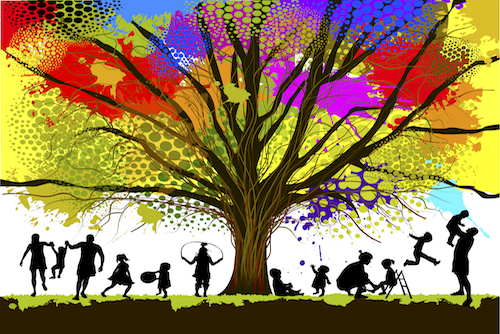Start A New Tradition This Year — Know Your Family History!
An old friend recently sent me a message that reminded me of…

An old friend recently sent me a message that reminded me of the holidays of yesteryear. Her words conjured up memories of my mother stocking up on soft drinks, biscuits, potato crisps and sweets in preparation for a Christmas day soiree. I smiled, recalling a younger me sitting on the kitchen counter, licking cake dough off the wooden spoon as the sweet aroma of small cakes baking filled the house.
Nostalgia overtook me as I recalled those times spent with family during the holidays. Those were certainly the days! We came together, sharing what little we had in the true spirit of giving. Love was both abundant and apparent. The diaspora was still a concept open to only a select few, many of whom made it a point to regularly come back home for Christmas.
But that was then, and we live in a very different world now. Soft drinks and biscuits are no longer special treats, but a part of everyday life. Raw cookie dough is a no-no. Worst of all, families spend less meaningful time together, and the diaspora has shattered ties as family members go years without seeing each other and first cousins know each other only through social media, if at all.
It’s time for us to create new traditions, and this year I invite you to join in me in starting a tradition that will benefit us, our children and their children for generations to come. It’s a tradition of discussing our family health and developing a family health tree. This year, I plan to learn more about my family’s health and glean as much information as I can about the diseases that my people are most prone to.
Why learn about family medical history?
Genetics plays a significant role in a person’s overall health. Your parents, grandparents, siblings and other close relatives will often tend to have the same health problems because in addition to sharing genes, they also share diet and lifestyle habits and are exposed to the same environmental factors.
Conditions such as diabetes, hypertension, cancer, sickle cell anemia and heart disease can be genetic. Knowing your family health history will help your health care provider identify what diseases you may be at risk for and guide you toward diet and lifestyle modifications you can make to prevent these conditions or delay their onset.
In addition, your family medical history can serve to alert your medical providers that certain tests, such as mammograms or colonoscopies, should be considered earlier than the usual recommended screening age.
Who should I talk to and what should I ask?
According to the Centers for Disease Control and Prevention (CDC), you should get the medical history of your parents, brothers, sisters, children, grandparents, uncles, aunts, nieces, nephews, half brothers and half sisters. Explain why you are asking them about their health, and advise them on the importance of keeping track of health information.
The CDC suggests asking the following questions:
- Do you have any chronic diseases, such as heart disease or diabetes, or health conditions such as high blood pressure or high cholesterol?
- Have you had any other serious diseases, such as cancer or stroke?
- How old were you when each of these diseases was diagnosed?
- What is our family’s ancestry — what country did we come from?
- For relatives who have died, what did they die from and how old were they when they died?
(Source: cdc.gov)
Now that I have the information, what should I do with it?
Once you have gathered your family health information, be sure to write it down and share it with your health care provider. You can also make copies to share with other family members so that they too can benefit from the gift of health in the form of knowledge and prevention. If you are Internet savvy, consider using My Family Health Portrait, a free online tool designed specifically to help you record and share your family health history.
The new year is a time of renewal, reflection and hope. Stay merry even after the holidays are over, and remember to share a little quality time with loved ones both near and far, all year long.
Here’s to your health!
Join us in celebrating the launch of our interactive digital issue. As a VIP, you get an Exclusive Pre-Launch Founder’s Rate Special! Limited time only. Click here for subscription details!
